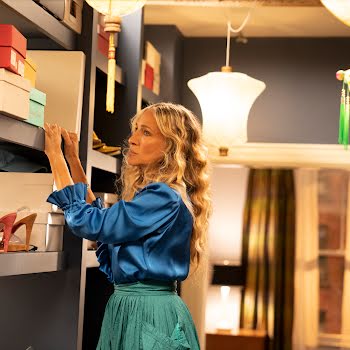
By Colette Sexton
30th Sep 2020
30th Sep 2020
Asking about maternity benefits during a job application process can be difficult, but it should not have to be
When employees try to woo a potential employee, they lay it all out: the salary, the bonus opportunities, the health insurance deals, the pension scheme, the long-term career opportunities, the social life within the company, flexible hours, paid gym membership, hell, even pool tables in the office.
But the one thing that is rarely, if ever, revealed, is their maternity leave policy, and it is the hardest benefit to ask about when being offered a role.
Many women might even base their final decision on whether the company offers paid maternity leave or not, but if they do not know then they have to take a risk on it.
Susie Farrell, founder and director of Addison Recruitment, an executive recruitment firm, says this is not just an issue in Ireland, but happens globally.
Hiding a pregnancy
“Becoming pregnant is life-changing but it can be loaded with concern for many professional women,” Susie said.
“Many women — including myself — have “hidden” their pregnancies for as long as possible. I know when I became pregnant with my second child, I had also started up my own business and didn’t share my ‘baby’ news with many clients until the last few weeks of my pregnancy. I worried about their perception of my professional commitment and that if I was for any time ‘absent’, they would work with another recruitment partner,” she said.
Susie says she would encourage companies to be open and discuss their policies for both maternity and paternity leave, and that it should be as clear as when they share other benefits such as annual leave or employee discounts.
If a company is offering attractive maternity entitlements, then there is no reason why they should keep this quiet during the hiring process as it could help to attract talent. She said that good parental benefits show that the company recognises the importance of family and allowing their employees time to bond with their children.
She said: “Women should be able to plan their finances – having a child is expensive and if they are not going to receive pay for a number of months (depending on what is offered in the first place) she needs to know before accepting the role and decide is it all really worth the move?”
As Susie points out, the more companies that openly share this information, the more it will become the norm.
Parental benefits
Unfortunately, it is not the norm yet, and leaves many people, both men and women, afraid of asking about parental benefits during the interview process in case they risk not getting the job.
If anyone is brave enough to ask the question before an official offer is made, it could damage the women’s chances of getting the job.
Some hiring managers will internally be asking themselves how challenging could it be to find a maternity cover placement for this role in potentially 12 months? This would particularly apply if the role is hard to recruit in the first place.
There are some ways to find out about parental policies without asking directly. Susie suggests finding someone in your personal or professional network who works in the company or previously worked there and who will fill you in.
Another option is a website called “Fairygodboss” which offers a database of companies and their maternity leave policies.
This is originally a US-based start-up so if you’re looking to join any multinational with offices in Ireland, you will be able to access the information pretty easily.
If those options do not work for you and you need to know the maternity leave policy, Susie suggests that you ask the question after the offer has been made. She adds that it is important to find out if there is a certain tenure in the role before a maternity benefit can be approved to the employee.
Even though it is illegal, it is likely that some companies in Ireland still discriminate against women they think might have a baby shortly after they secure the job. But it is not all bad news.
Susie says: “Every day I speak to companies who are keen to hire the right talent, the right people for their business. If they identify someone who is a fit, and plan to have a baby – this is the modern world.
“Women can work and have babies. Most hiring managers have this understanding and will hire on the candidate’s ability to do the job regardless of planning to have a child or not.”
Read more: Tips from a new dad
Read more: First-time fatherhood
Read more: 5 things you’ll think when you have your second child























